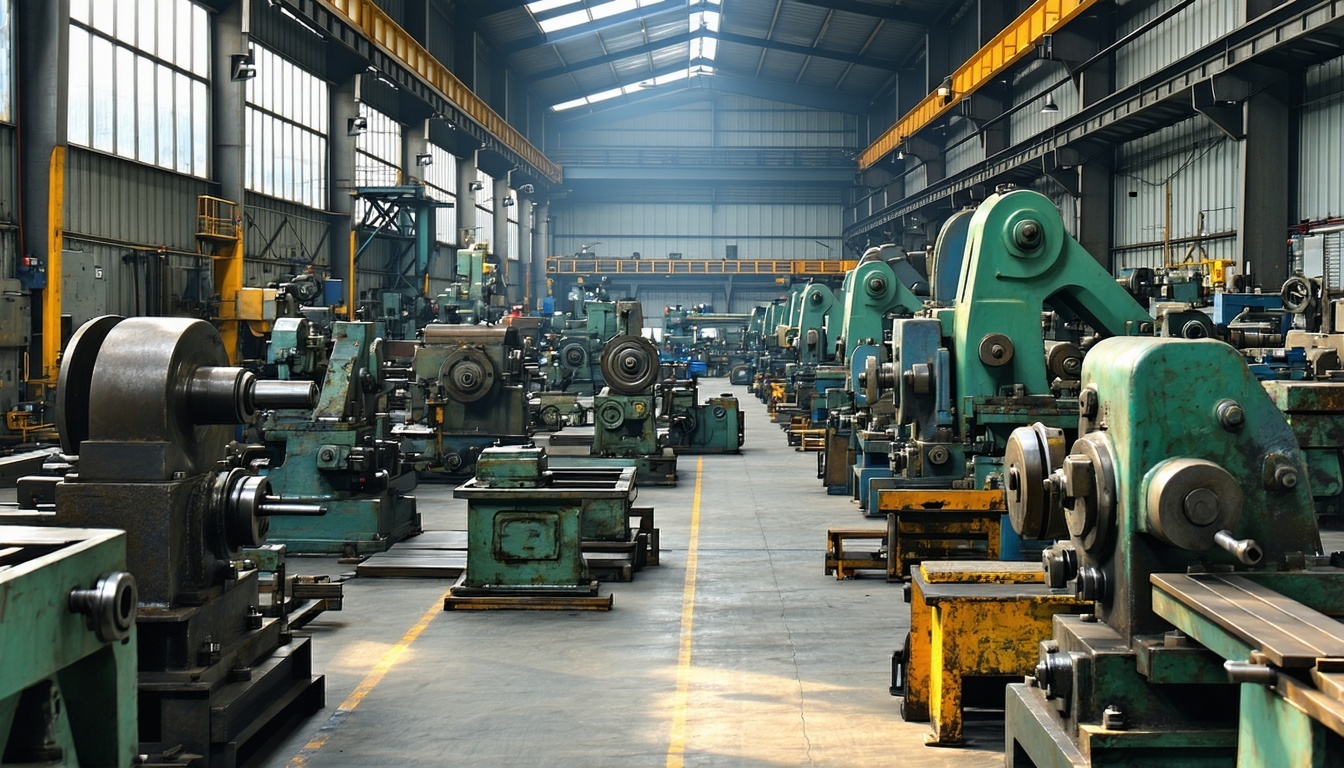Financing Options for Metalworking and Fabrication Businesses
Running a metalworking or fabrication business requires heavy-duty tools, skilled labor, and constant adaptation to project demands. Whether you’re operating a job shop, welding operation, or precision machining company, success often comes down to having the right equipment—and enough working capital to use it effectively.
If you’re looking to purchase new machinery, expand your shop, or simply manage cash flow between jobs, financing options for metalworking and fabrication businesses can help you stay competitive and scale strategically.
Why Metalworking Businesses Need Financing
The metal fabrication industry is capital-intensive, with fluctuating material costs and long payment cycles from commercial clients. Financing allows you to:
-
Purchase CNC machines, plasma cutters, and welding stations
-
Upgrade safety and ventilation systems
-
Expand your facility or build a new shop
-
Hire and train skilled labor
-
Bridge cash flow gaps during project cycles
-
Buy raw materials in bulk for cost savings
Rather than waiting on retained earnings, strategic funding helps you grow now—when demand and opportunity are highest.
Best Financing Options for Metalworking Businesses
1. Equipment Financing
Best for: Purchasing or upgrading essential tools and machines.
-
Equipment acts as collateral
-
Covers up to 100% of the cost
-
Terms range from 2 to 7 years
-
Fixed monthly payments
Ideal For: Lathes, presses, cutters, shears, mills, and robotics
2. SBA 7(a) and 504 Loans
Best for: Major investments like real estate, large equipment, or business expansion.
-
Up to $5 million in funding
-
Low interest rates, long terms (10–25 years)
-
Use for equipment, working capital, or renovations
-
Backed by the U.S. Small Business Administration
504 Loans are especially effective for purchasing or renovating a fabrication facility.
3. Business Term Loans
Best for: One-time needs like bulk material orders or adding a production line.
-
Lump sum with fixed interest and repayment terms
-
Quick funding through online lenders or banks
-
Ideal for short- to medium-term investments
4. Business Line of Credit
Best for: Covering seasonal cash flow issues or project-related expenses.
-
Flexible draw structure
-
Only pay interest on the amount used
-
Reusable as you repay
-
Great for managing payroll or raw material purchases
5. Invoice Financing / Factoring
Best for: Bridging the gap between project completion and client payment.
-
Advance on unpaid invoices (up to 90%)
-
Repay once the customer pays
-
Ideal for B2B metal fabricators with long payment terms
Common Funding Uses in Metal Fabrication
🏭 Facility Upgrades
-
Shop expansions
-
HVAC and dust collection systems
-
ADA compliance or workflow redesign
⚙️ Equipment Purchases
-
CNC machining centers
-
Welding stations and automation arms
-
Tube benders, rollers, and cutting systems
🔩 Workforce Development
-
Hiring skilled welders, machinists, or engineers
-
Safety training and OSHA certifications
-
ERP software training or technology onboarding
📦 Inventory & Raw Materials
-
Steel, aluminum, titanium, and specialty metals
-
Wire, rod, pipe, and sheet stock
-
Cutting tools and fasteners in bulk
Real Example: Precision Machining Shop Expansion
Business: A precision machining shop in Indiana
Need: Add a new 5-axis CNC machine and expand floor space
Solution:
-
$100,000 equipment financing for the machine
-
$250,000 SBA 504 loan for facility expansion
Outcome: Increased project capacity by 40%, took on larger aerospace contracts, and reduced subcontracting costs by 60%
What Lenders Look For
| Criteria | What It Means |
|---|---|
| Credit Score | 650+ (lower accepted by alternative lenders) |
| Time in Business | 1–2 years preferred for term loans or equipment loans |
| Revenue History | Steady cash flow and profit margins |
| Use of Funds | Clear plan to invest in productivity or expansion |
| Collateral (if applicable) | Equipment, property, or receivables |
How to Prepare for Financing
-
Assess your needs: Equipment, cash flow, or facility?
-
Estimate ROI: Will this investment increase capacity, speed, or margins?
-
Gather documents: Financial statements, tax returns, equipment quotes
-
Choose lender type: Bank, online lender, SBA, or vendor financing
-
Compare terms: Look at rates, repayment schedules, fees, and flexibility
Where to Find Metalworking Business Financing
-
Banks and Credit Unions (great for SBA and term loans)
-
Online Lenders like Lendio, Fundbox, and BlueVine
-
Equipment Financing Specialists such as Crest Capital, CIT, or Triton Capital
-
SBA-Approved Lenders for long-term, low-rate options
-
Vendor Financing directly from equipment manufacturers
Final Thoughts
In the competitive world of metalworking and fabrication, standing still means falling behind. Whether you need to automate, expand, or stabilize your business, the right financing gives you the power to grow efficiently and stay ahead of client demands.
With smart funding, you can turn big equipment investments into bigger profits—without putting your cash flow at risk.
Need help choosing the right financing for your fabrication shop?
Explore your options today and start building your future, one weld at a time.











